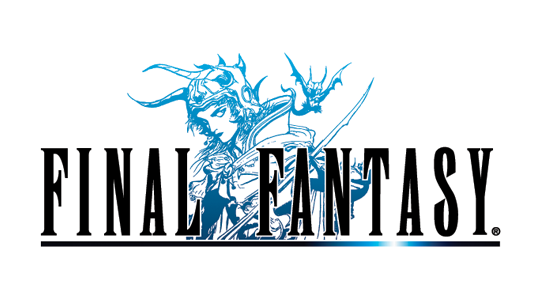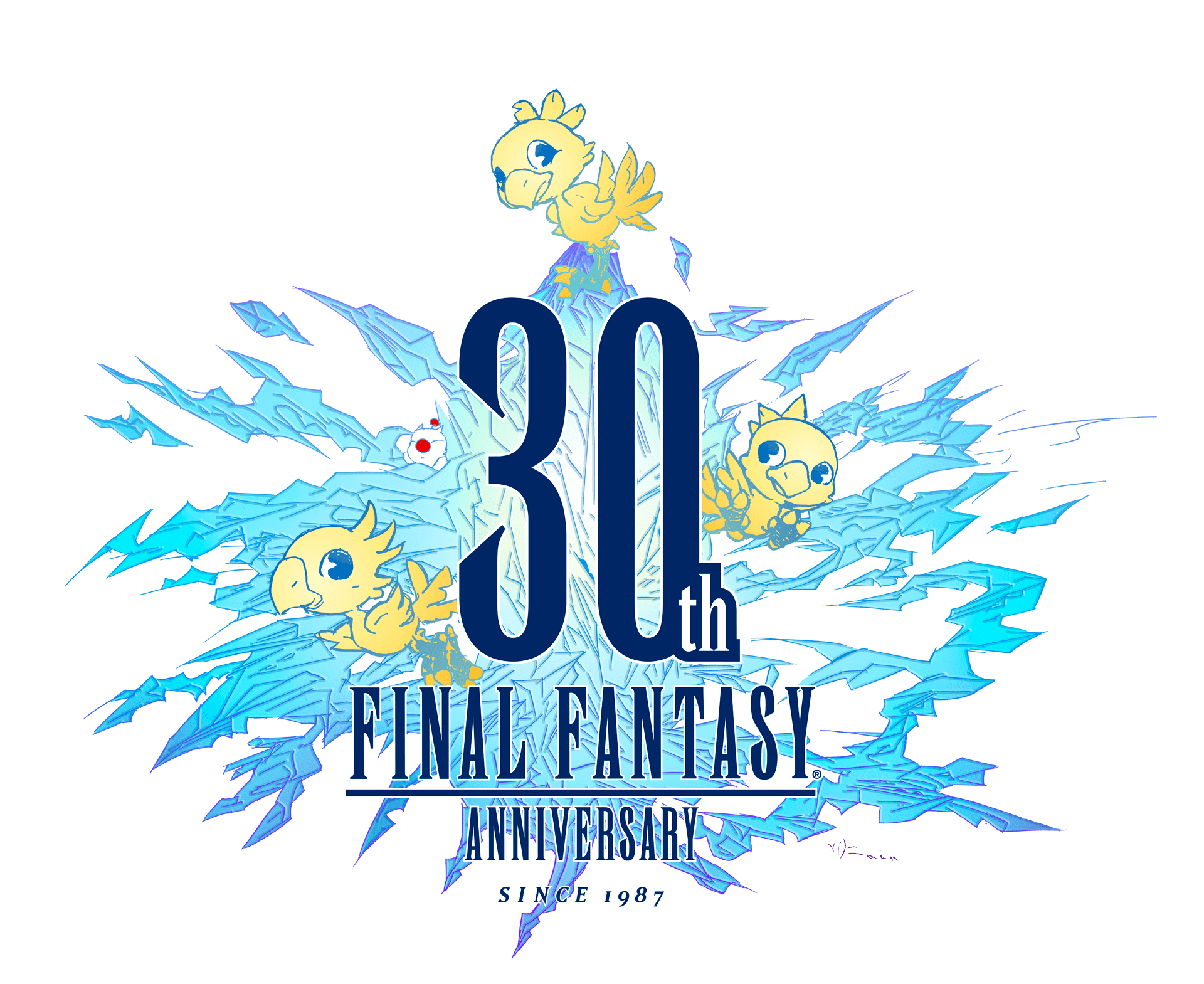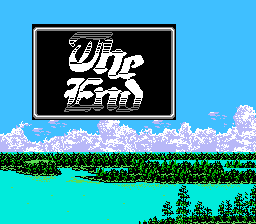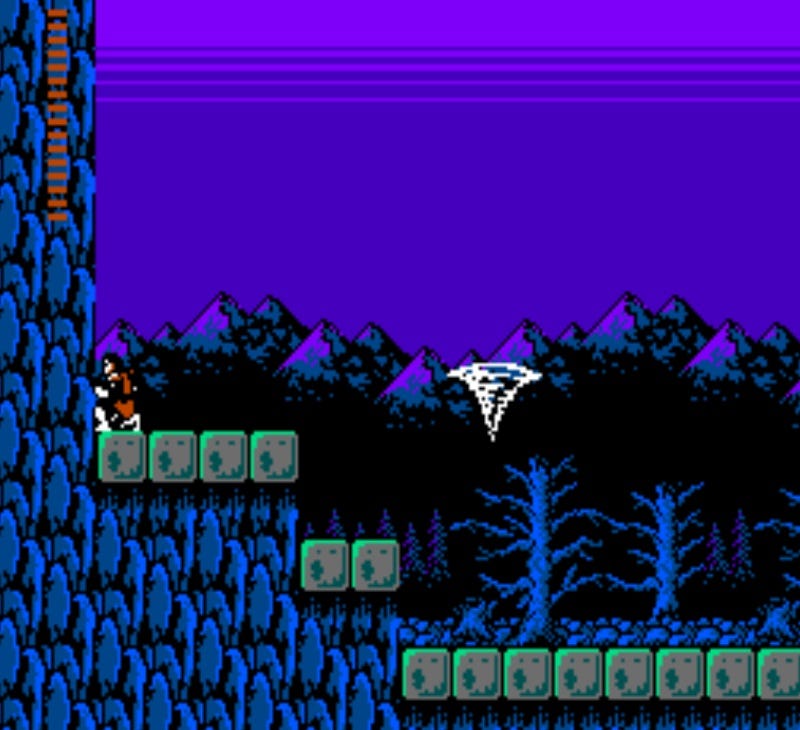Faust
Perpetually Tired

The world is veiled in darkness. The wind stops, the sea is wild, and the earth begins to rot. The people wait, their only hope, a prophecy....
'When the world is in darkness Four Warriors will come....'
After a long journey, four young warriors arrive, each holding an ORB.
And so, their journey begins....
What awaits the Four, they do not know.
Each holding an ORB, that 2000 years ago shined with beauty from within. But now, only darkness.
Come!! Start your Journey! Return the light of peace to our world.
Final Fantasy was developed by Square Co., Ltd. for the Famicom and Nintendo Entertainment System. Many gamers know the story of Square's repeated failures prior to Final Fantasy, but for those unfamilar, here is a brief recap: Masafumi Miyamoto founded the company in 1986 when he came to the conclusion that game development would be more efficient with more staff. The first two games, Death Trap and Will: The Death Trap II recieved moderate success when they released for the NEC PC-8801, but after numerous unsuccessful releases in the console market such as the eroge Alpha (yes, Square Co., Ltd. did release a first party erotic title with music by Nobuo Uematsu no less!) and King's Knight, Square was in financial straits. Inspired by the success of Enix's Dragon Quest, Square finally gave Hironobu Sakaguchi the go-ahead to develop the role-playing game (RPG) he had wanted to make for years. His vision was inspired by two hit RPGs from the west, Ultima from Origin Systems and Wizardry from Sir-Tech, but he needed a team to develop this project.
The team would eventually consist of 16 individuals, 7 of whom were considered part of the "A-Team" by Square, and only 8 of which were credited in the original Famicom release. Hironobu Sakaguchi was the lead designer and Hiromichi Tanaka, Akitoshi Kawazu, and Koichi Ishii (the latter two were convinced by Sakaguchi personally) were the co-directors for the project. Kenji Terada helped co-write the title, using the story given to him by Sakaguchi as a base. He also suggested Yoshitaka Amano as the character designer. After some reservations, Sakaguchi was convinced. The beautiful artwork provided were transformed into sprites thanks to the work of Kazuko Shibuya and Takashi Tokita. However, no game is complete without a proper score to help spur the imagination and sell the idea of adventure. Sakaguchi asked Nobuo Uematsu, who was doing soundtracks for the company as a "side job" at the time. Uematsu accepted and a few minor instructions later, he was given nearly free reign to compose the tracks. Toshiaki Imai helped with the sound by developing the sound effects. Nasir Gebelli was given the job to program for the game, though Ken Narita and Kiyoshi Yoshii had worked as assistant programmers. Finally, Kaoru Moriyama was behind the English localization for the original NES release.
Final Fantasy was a hit upon release, with 600,000 copies sold in Japan across the various platforms upon launch. Knowing they had a hit on their hands, Square Co., Ltd. and Nintendo made a marketing push in the west with full page spreads in Nintendo Power, sweepstakes to win a limited Final Fantasy orb, full guides, and more. This success worked as over 700,000 copies were sold within the US alone. Since then, the game has been re-released, remade, and remastered more than 15 times since.
It was safe to say that Hironobu Sakaguchi still had a place in the gaming industry, despite his reservations prior to the launch of the game, but what was it about Final Fantasy that drew people to it? What set it apart from the other RPGs at the time? Numerous factors can be accreddited to the game's success, depending on who you ask. Some attribute it to the story and its pacing, starting you off with saving the princess within the first few hours (which would be the entire game for many titles at the time) and eventually opening up to a grand adventure across the planet to stop Chaos. Others would attribute it to the gameplay which was lovely crafted by folks such as Hiroyuki Ito and Akitoshi Kawazu. The music, the character designs, and more can be listed as reasons why the game was a success internationally.
Personally, I can't say that it was any one of these particular reasons or the numerous ones I didn't list, but instead it was all of these reasons working in tandem that set it apart from the competitors at the time. The freedom of choosing your own party, exploring a vast world with twists and turns not thought possible at the time for a console title, music that remains catchy and memorable decades later, and a combat system that married the western and eastern conventions of the genre almost perfectly for its time.

Square Enix, as they tend to do, celebrated the 30th Anniversary in style. Games, books, merchandise, and music were all created and sold to celebrate the event.
- Itadaki Street: Dragon Quest & Final Fantasy 30th Anniversary was released on October 19th, 2017 for the Playstation 4 and Playstation Vita in Japan. This was to celebrate both franchises 30th anniversaries.
- A live recitation of a Dissidia Final Fantasy NT side-story occured twice in December of that year. Titled Dissidia Final Fantasy: Secretum -Himitsu-, the first day of the event was on December 18th, exactly 30 years after the release of the original game (also 10 years since the original Dissidia Final Fantasy, which was released to coincide with the 20th anniversary).
- Everybody's Golf received special in-game items, such as Cactuar jackets, caps, Chocobo carts, Moogle costumes, and more.
- Final Fantasy 30th Anniversary bluray/CD set released, showcasing videos, music, and artwork from the franchise as a whole. The site still exists and can be seen here.
30 years later and the franchise continues to grow, despite the hits and misses depending on who you ask. This year we had received the much anticipated Final Fantasy 7 Remake, alongside Final Fantasy Crystal Chronicles Remastered, and a mobile return of the Tactics-style games with War of the Visions. With the announcement of a new expansion later this year for Final Fantasy XIV, there is still plenty to look forward to for the franchise.

Happy birthday, Final Fantasy.
Thank you for the memories.
Last edited:




